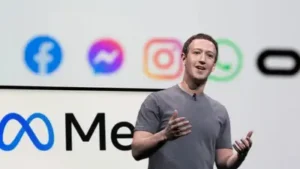
Mark Zuckerberg kept his inner circle small.
Last month, the Meta CEO gathered a select group of top policy and communications executives to discuss the company’s approach to online speech. After meeting President-elect Donald Trump at Mar-a-Lago over Thanksgiving, Zuckerberg decided to implement sweeping changes. He now needed his team to translate those ideas into policy.
Over the following weeks, Zuckerberg and his hand-picked group held discussions through Zoom calls, conference calls, and late-night chats. Some employees worked through family dinners and holiday breaks, while Zuckerberg contributed between visits to his homes in the San Francisco Bay Area and Kauai. By New Year’s Day, he was ready to announce the changes, according to four current and former Meta employees and advisers who spoke on condition of anonymity.
The process was highly unconventional. Normally, Meta’s policy changes—affecting apps like Facebook, Instagram, WhatsApp, and Threads—take months and involve input from employees, civic leaders, and other stakeholders. This time, Zuckerberg condensed the process into a secretive six-week sprint, leaving even the company’s policy and integrity teams blindsided.
On Tuesday, most of Meta’s 72,000 employees learned of the changes alongside the public. The company announced it would loosen restrictions on discussions about contentious social issues such as immigration, gender, and sexuality. It also scrapped its fact-checking program, opting to rely on users to flag false information, and decided to reintroduce more political content into users’ feeds, reversing its earlier strategy of de-emphasizing such material.
The changes, which will significantly impact what users see online, have sparked mixed reactions. Trump and conservative groups praised the moves, while President Joe Biden, fact-checking organizations, and misinformation researchers criticized them. LGBTQ+ advocacy groups expressed concern, fearing the changes could lead to increased online and offline harassment.
Inside Meta, the reaction has been deeply divided. While some employees welcomed the changes, others were stunned, openly criticizing the decisions on internal message boards, with several expressing shame about working for the company.
The shakeup continued on Friday when Meta announced it would end its diversity, equity, and inclusion (DEI) efforts. The company eliminated the chief diversity officer role, discontinued its diversity hiring goals, and stopped prioritizing minority-owned vendors.
“Meta will now focus on applying fair and consistent practices that mitigate bias for everyone, regardless of background,” Janelle Gale, vice president of human resources, wrote in an internal memo shared with The New York Times.
